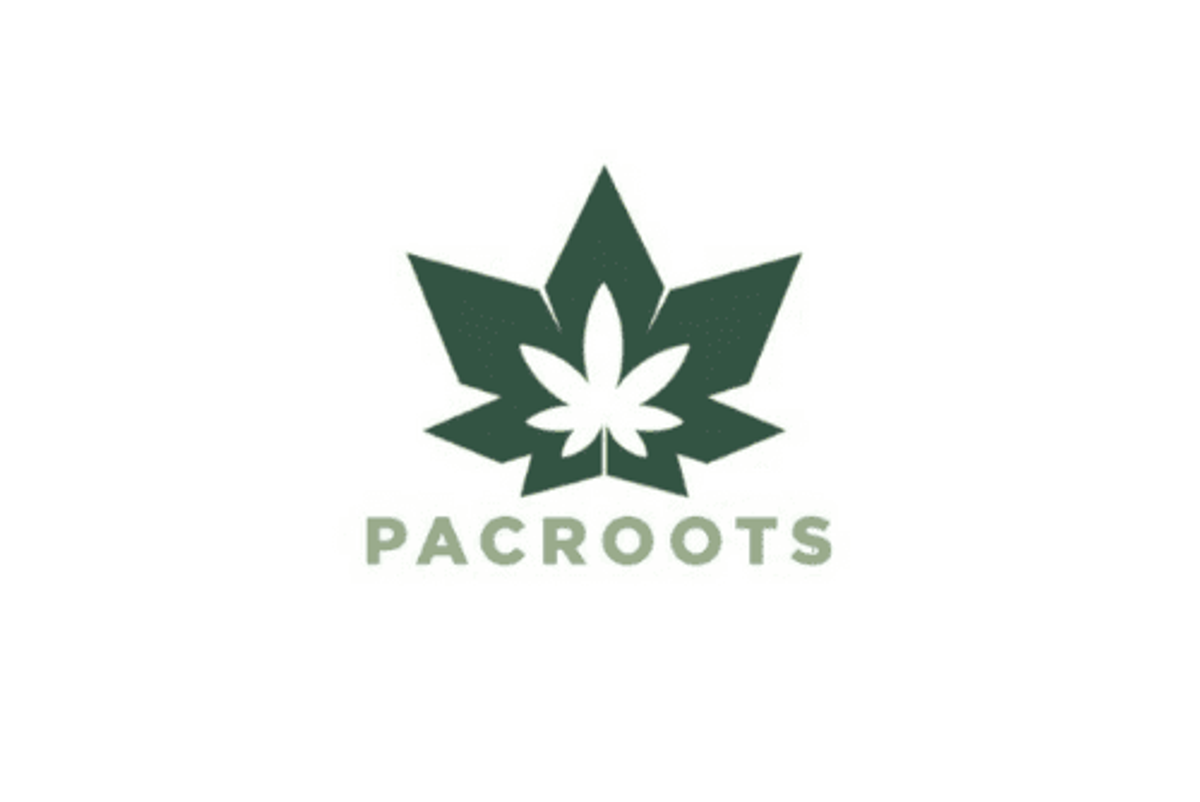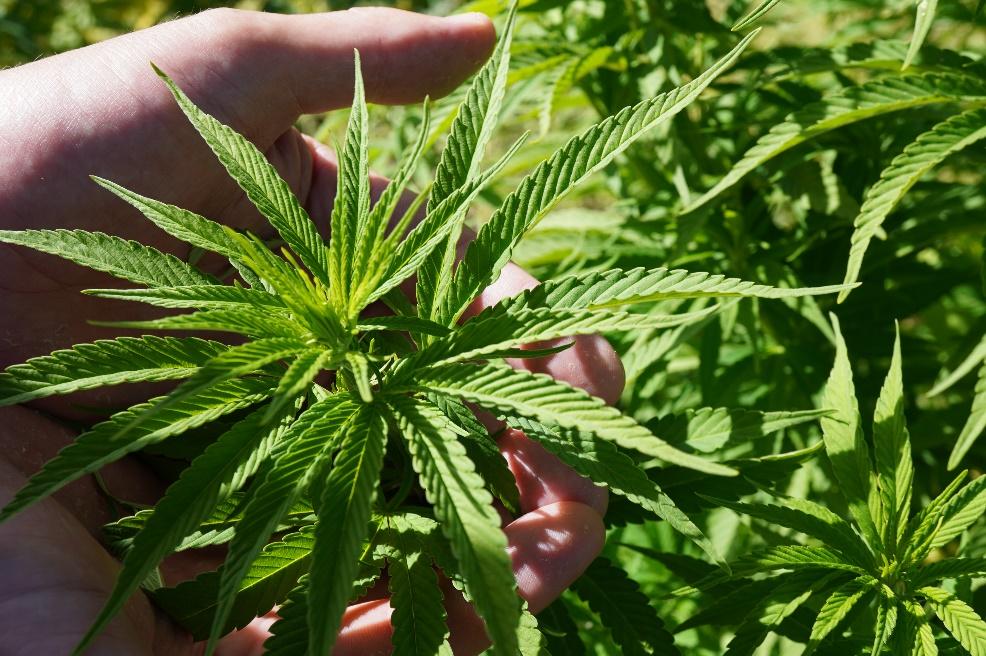
Pac Roots Cannabis Corp. ("PacRoots" or the "Company") (CSE:PACR)(OTCQB:PARCF) a holder, through a joint venture of a Health Canada license to cultivate, sell, import, export, possess and process industrial hemp is pleased to announce an update for its first successful 100-acre Pilot Outdoor Hemp CBD harvest
First Harvest Is Profitable
The harvest yielded a quality much higher than our expectations and the total biomass yield of over 105,000 lbs have been prepared for sale and processing to Speakeasy Cannabis Club (CSE:EASY). With a very low cost to harvest, as opposed to greenhouse costs that currently dominate the industry, the Company has an opportunity to disrupt categories within the hemp industry. PacRoots believes that the largest advantage it has over its competition is its low-cost production, giving the Company the ability to be extremely price competitive on the market while continuing to maintain healthy profit margins.

Figure 1: Hemp plant during a bi-weekly inspection. Head farmer is ensuring the plants remain healthy during the growing season.
President and CEO, Patrick Elliott comments, "We are very proud of our team and partners at Rock Creek Farms who have been committed to the vision and dedicated to achieving success. In light of some unusual weather extreme, the team was able to react quickly and minimize crop loss from the early freezing temperatures experienced during the harvest. The JV is fortunate to have recovered as much tonnage as was realized under the circumstances that culminated at other farms in the Province. PacRoots and our partners are thrilled to build on this success as we launch into 2021 with various exciting projects".

Figure 2: Hemp plant during peak growing season - experiencing 65 days of uninterrupted sunshine.
Environmental Factors Spoil Yield for many Canadian Cultivators
PacRoots' completion of its successful 2020 outdoor premium CBD hemp harvest, marks the Company's first production project. The results highlight how important the combination of farming experience, with suitable genetics in an ideal climate and region are to grow and deliver a successful CBD hemp crop. British Columbia's spring was not a typical one and less than perfect, with a wet spring and a cold harvest. The fall ended earlier than usual with freezing temperatures and snow, but the summer was as expected for the area; warm temperatures, and no precipitation for over 65 days. The unusual early freeze reinforced how imperative it is to carefully select outdoor, region specific genetics capable of finishing earlier. PacRoots and Rock Creek Farms were able to limit the frost exposure and damage to the crop due to the experience and versatility of the Geen Family and their farming practices; from staggered planting and harvest, to system controls, several varieties of genetics and a healthy affiliated personnel crew, the JV was able to deploy a shotgun harvest and recover more biomass versus the alternative.
Operations Advisor, Marc Geen states, "2020 has thrown many things at us, the latest was snow and freezing weather that broke all records in the area dating back to 1886 when they began keeping records in Rock Creek. We feel fortunate to have recovered most of the biomass from the 100-acres while most of our peer group seized to recover any significant yield".
PacRoots Team Expecting 200-300% Increase in Yield for 2021
The JV Operations team is excited to head into the 2021 planting season. The Company is eager to get an early start, weather permitting, on propagation, field prep and planting. A tremendous effort has been devoted by our farmers and scientists to monitoring, testing water, soil and product, and utilizing the data to accelerate and optimize the operations strategy towards a robust 2021 outdoor project.
In accordance with the Industrial Hemp Regulations of the Cannabis Act (Canada), an industrial hemp license from Health Canada was issued on May 22nd, 2020 for the addresses relating to the acreages at Rock Creek Farms. The license allows the collective to cultivate, sell, import, export, possess and process industrial hemp until March 15th, 2021. In the first quarter of 2021 a subsequent application will be submitted for the ensuing growing Season.
CBD Market Opportunity
The global CBD oil and CBD consumer health market size is expected to reach USD $123.2 billion by 2027 [Source]
Various health and wellness retailers such as CVS Health, Rite Aid, and Walgreens Boots Alliance have decided to sell CBD-based products. Moreover, CVS Health is planning to sell CBD topicals through its 800 stores, and Walgreens Boots Alliance is planning to sell CBD containing topicals in 1500 of its stores in the U.S. [Source]
ON BEHALF OF PAC ROOTS CANNABIS CORP.
(signed) "Patrick Elliott"
Chief Executive Officer
For further information, please contact:
Pac Roots Cannabis Corp.
www.pacroots.ca
Telephone: 604-609-6171
Certain statements included in this press release constitute forward-looking information or statements (collectively, "forward-looking statements"), including those identified by the expressions "anticipate", "believe", "plan", "estimate", "expect", "intend", "may", "should" and similar expressions to the extent they relate to the Company or its management. The forward-looking statements are not historical facts but reflect current expectations regarding future results or events. This press release contains forward looking statements. These forward-looking statements are based on current expectations and various estimates, factors and assumptions and involve known and unknown risks, uncertainties and other factors.
Statements about the Company's expectations regarding its joint venture operations, including future yield, are all forward-looking information.
Forward-looking statements are not a guarantee of future performance and involve risks, uncertainties and assumptions which are difficult to predict. Factors that could cause the actual results to differ materially from those in forward-looking statements include failure to obtain an industrial hemp in a timely manner or at all, the continued availability of capital and financing, and general economic, market or business conditions, including the effects of COVID-19. Forward-looking statements contained in this press release are expressly qualified by this cautionary statement. These statements should not be read as guarantees of future performance or results. Such statements involve known and unknown risks, uncertainties and other factors that may cause actual results, performance or achievements to be materially different from those implied by such statements. Although such statements are based on management's reasonable assumptions, there can be no assurance that the statements will prove to be accurate or that management's expectations or estimates of future developments, circumstances or results will materialize. The Company assumes no responsibility to update or revise forward-looking information to reflect new events or circumstances unless required by law. Readers should not place undue reliance on the Company's forward-looking statements.
Neither the Canadian Securities Exchange (the "CSE") nor its Regulation Services Provider (as that term is defined in the policies of the CSE) accepts responsibility for the adequacy or accuracy of this release.
SOURCE: Pac Roots Cannabis Corp.
View source version on accesswire.com:
https://www.accesswire.com/621254/PacRoots-is-Pleased-to-Announce-Profitable-First-Project-with-an-ROI-of-200-and-Yield-of-105000-lbs-of-Hemp-CBD